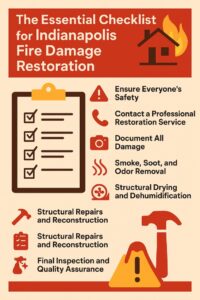Language can often be confusing, especially when similar words are spelled differently. A prime example of this is “orthopaedic” vs “orthopedic.” While both terms refer to the same branch of medicine dealing with musculoskeletal health, their usage varies across the globe. This article explores the subtle differences between these spellings, their historical roots, and when to use each. Additionally, we’ll highlight how hospitals like Dr. Kelkar Hospital excel in delivering advanced orthopedic care.
The Origins of “Orthopaedic” vs “Orthopedic”
The word “orthopaedic” traces its roots to the Greek words orthos (meaning straight) and paideia (meaning children or teaching). The term was originally coined in 1741 by French physician Nicolas Andry. He combined these words to describe a medical discipline aimed at correcting skeletal deformities in children.
When the field expanded beyond pediatrics to address musculoskeletal health in general, the term “orthopaedic” became standard in many English-speaking countries. However, as the word crossed the Atlantic, it underwent a transformation. In the United States, “orthopedic” became the preferred spelling, likely due to the trend of simplifying British English spellings for clarity and ease.
Regional Preferences: Orthopaedic or Orthopedic?
The choice between “orthopaedic” and “orthopedic” largely depends on where you are. Here’s a breakdown:
- Orthopaedic
- Used in British English and other Commonwealth countries, including Canada, Australia, and India.
- Common in formal medical journals and traditional institutions.
- Orthopedic
- Standard in American English.
- Widely used in the U.S. healthcare system and related industries.
Despite these regional differences, both terms are widely understood and interchangeable in professional contexts.
Practical Implications of the Spelling Variance
Although the difference in spelling might seem trivial, it can carry certain implications:
- Consistency in Communication
When addressing international audiences, aligning with the regional preference can improve clarity and professionalism. - Search Engine Optimization (SEO)
Businesses in the healthcare sector should consider using both spellings strategically for better online visibility. - Cultural Identity
Some organizations prefer “orthopaedic” to emphasize tradition, while others opt for “orthopedic” for simplicity and modernization.
Orthopaedics/Orthopedics: A Vital Field of Medicine
Now that we’ve clarified the spelling differences, it’s essential to understand the significance of this medical specialty. Orthopaedics focuses on diagnosing, treating, and preventing disorders related to the musculoskeletal system, including bones, joints, muscles, ligaments, and tendons.
Conditions treated within this specialty range from fractures and arthritis to sports injuries and spinal disorders. Advanced procedures, such as joint replacements, minimally invasive surgeries, and rehabilitation programs, showcase the field’s evolution and importance.
Advancements in Orthopaedic/Orthopedic Care
The field has seen remarkable progress over the years. For instance:
- Minimally Invasive Surgery
Modern techniques reduce recovery time and improve patient outcomes. - Robotic-Assisted Surgery
Precision tools enhance surgical accuracy, especially in joint replacement procedures. - Biologics
Innovations like stem cell therapy and platelet-rich plasma (PRP) promote natural healing. - Telemedicine
Patients now have access to consultations and follow-ups without leaving their homes.
Institutions at Kovilpatti are at the forefront of implementing these advancements, offering world-class orthopedic care tailored to individual needs.
When to Use “Orthopaedic” vs “Orthopedic”
Knowing when to use the correct term is important, particularly in professional or academic writing. Here are some tips:
- If writing for an American audience, “orthopedic” is the preferred choice.
- For British, Australian, or Indian audiences, “orthopaedic” aligns better with regional norms.
- When in doubt, check the preferred spelling of your audience or organization to ensure consistency.
Common Procedures in Orthopaedics/Orthopedics
Both terms refer to the same set of treatments and procedures aimed at improving mobility and reducing pain. Popular procedures include:
- Joint Replacement Surgery
Ideal for patients with severe arthritis or joint degeneration. - Arthroscopy
A minimally invasive procedure to diagnose and treat joint problems. - Spinal Surgery
Effective for conditions like herniated discs or spinal stenosis. - Fracture Repair
Ensures proper bone alignment and healing after traumatic injuries.
The Global Impact of Orthopaedic/Orthopedic Medicine
Orthopaedic/orthopedic medicine plays a critical role in improving quality of life worldwide. According to studies, musculoskeletal disorders are among the leading causes of disability. Addressing these issues promptly can significantly enhance mobility, independence, and overall well-being.
Moreover, orthopaedic/orthopedic treatments contribute to economic productivity by helping individuals return to work and daily activities faster. With increasing advancements, this field continues to break barriers and redefine possibilities for patients globally.
Conclusion
Whether you prefer orthopaedic vs orthopedic, the essence of the term remains unchanged. This dynamic branch of medicine is indispensable in improving lives through advanced treatments, compassionate care, and innovative techniques. Institutions like Dr. Kelkar Hospital demonstrate how orthopaedic/orthopedic practices can make a significant difference.
As you navigate the world of musculoskeletal health, remember that the choice of spelling reflects regional preferences rather than a difference in meaning. So, whether you’re in London or Los Angeles, orthopaedic or orthopedic care is always within reach.









